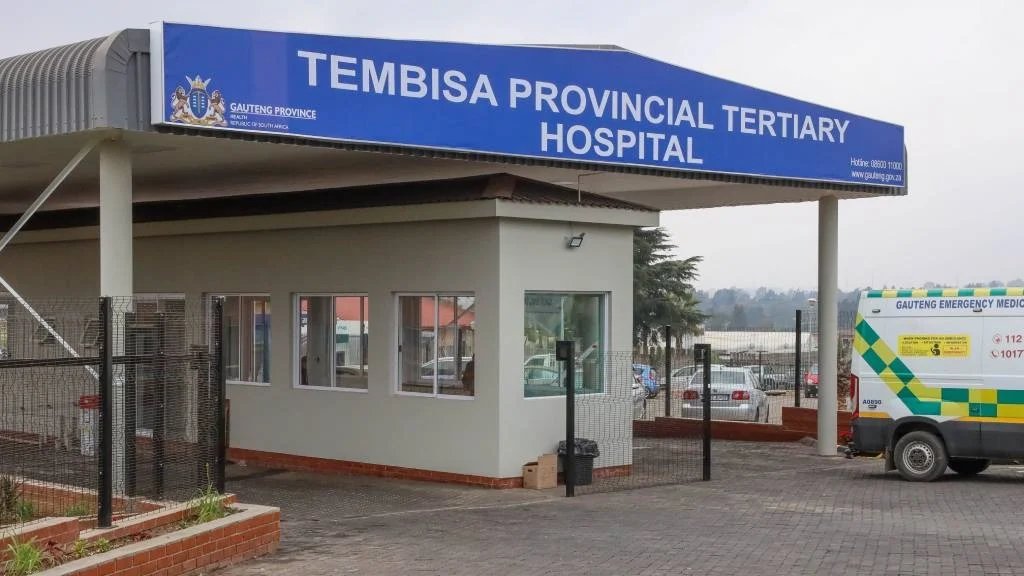News
Tembisa Hospital’s R2 Billion Scandal: How Corruption and Bureaucracy Let Criminal Syndicates Thrive

R2 Billion Looted: The Scandal That Never Sleeps
Tembisa Hospital, once a beacon of hope for Gauteng patients, is now a symbol of deep-rooted corruption. Over R2 billion has been siphoned off through a web of irregular contracts, bypassed tender processes, and manipulative procurement tactics, according to the Special Investigating Unit (SIU).
The scandal first came to light thanks to whistleblower Babita Deokaran, whose assassination in 2021 shocked the nation. Deokaran exposed fraudulent payments of R850 million to more than 200 companies. Today, the SIU investigation shows the total damage has ballooned to over R2 billion, money that should have been used to save lives.
How the Looting Worked
The SIU report paints a disturbing picture: 207 service providers were awarded 4,501 purchase orders that ignored official procurement rules. Orders were intentionally kept below R500,000 to avoid formal tender processes, using a lax three-quote system that was easily manipulated. Suppliers weren’t drawn from the central supplier database, and rotation among providers was non-existent, suggesting collusion.
In short, criminal syndicates exploited systemic loopholes while senior officials looked the other way.
Finger-Pointing and Bureaucratic Loopholes
Health Minister Aaron Motsoaledi has called in the SIU to submit the names of implicated companies to the National Treasury for blacklisting. While the Minister insists that only Treasury can officially blacklist companies, governance experts say this shows a worrying lack of accountability.
Political analyst Sandile Swana warns that blacklisting is “not part of the culture” in South Africa. Motsoaledi’s decision to outsource the responsibility signals a lack of trust in hospital leadership and Health Department officials. “This is a way to avoid blame while criminal syndicates continue operating,” Swana said.
Public servants and analysts echo the frustration. The Public Servants Association (PSA) called the failure to blacklist the companies a “shocking lapse” that erodes public trust. Meanwhile, Professor Andre Duvenhage of North-West University notes that the lack of early criminal justice involvement, especially after Deokaran’s murder, highlights systemic inefficiency and weak political oversight.
A Culture of Corruption?
What makes the Tembisa scandal especially alarming is that it reflects more than just one hospital’s failings. It exposes vulnerabilities in South Africa’s procurement system and government oversight. Black empowerment policies, designed to uplift local businesses, have in some cases been co-opted to facilitate corrupt deals.
The question many South Africans are asking on social media is simple: how can millions of rand vanish from a public hospital without anyone facing consequences?
Moving Forward: Can Accountability Catch Up?
The SIU’s involvement is a start, but experts argue it’s long overdue. Public confidence has been shaken, and the failure to act decisively risks further damage to state institutions.
As Gauteng and National Treasury officials remain silent on the next steps, ordinary South Africans are left wondering if this scandal will ever reach closure or if it will join the long list of corruption cases that disappear into bureaucratic limbo.
The Tembisa Hospital saga is a stark reminder: billions may be looted, lives are disrupted, and until accountability becomes the norm rather than the exception, South Africa’s public institutions remain vulnerable to those willing to exploit them.
{Source: IOL}
Follow Joburg ETC on Facebook, Twitter , TikTok and Instagram
For more News in Johannesburg, visit joburgetc.com



























